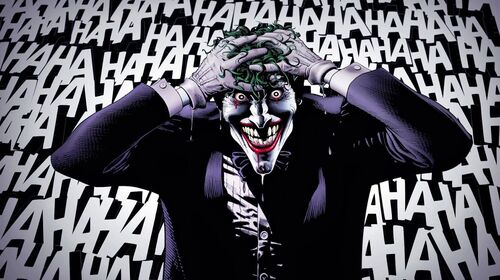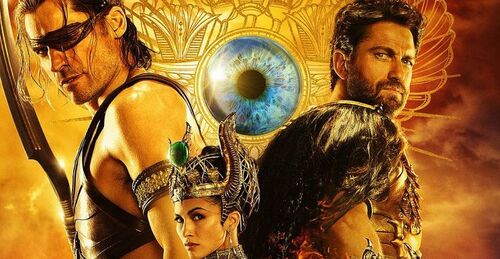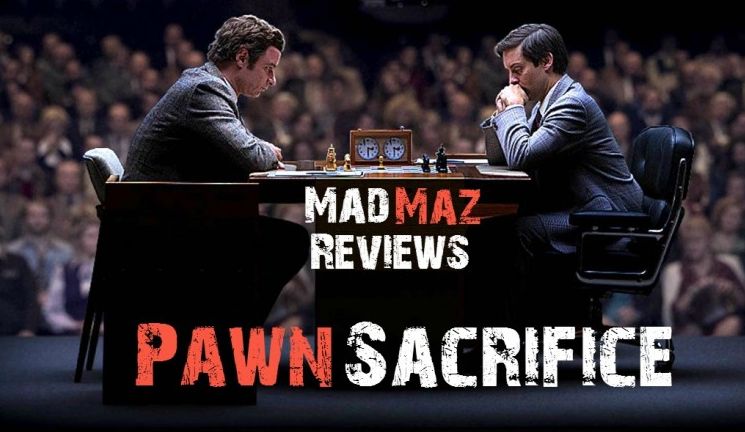
Pawn Sacrifice Screams “Beat Those ‘Commie’ Bastards” Whilst Justifying Madness for the Greater Good
 The most fascinating aspect of the Cold War wasn’t the “war” itself, if we can even call it a war in the traditional sense. There were no soldiers facing off on a bloody battlefield or the taking of land. There was no pillaging or slaughtering of innocent people. The war that pitted the two super-powers, America and Soviet-Russia, was a war of public perception and public dominance rather than a war of bloodshed. Sure, there was a constant fear of nuclear arms being put in place but in terms of the actual battles, it was more like two brothers who constantly were trying to out-do one another.
The most fascinating aspect of the Cold War wasn’t the “war” itself, if we can even call it a war in the traditional sense. There were no soldiers facing off on a bloody battlefield or the taking of land. There was no pillaging or slaughtering of innocent people. The war that pitted the two super-powers, America and Soviet-Russia, was a war of public perception and public dominance rather than a war of bloodshed. Sure, there was a constant fear of nuclear arms being put in place but in terms of the actual battles, it was more like two brothers who constantly were trying to out-do one another.
In that sense, many things that would be considered “everyday” or even mundane, could easily become stuff of crisis or important for the survival of a respective nation. This idea is not new to film, we see this often… the idea that a normal every-day event is somehow more important than it was the day prior simply because it involves a dispute between Russia and America. Rocky IV and Miracle are among these films that glorify men in the face of the Cold War. Toby McGuire’s biopic, Pawn Sacrifice, is a movie in a similar vein to those listed above– but with Chess as the sport in question
Thoughts
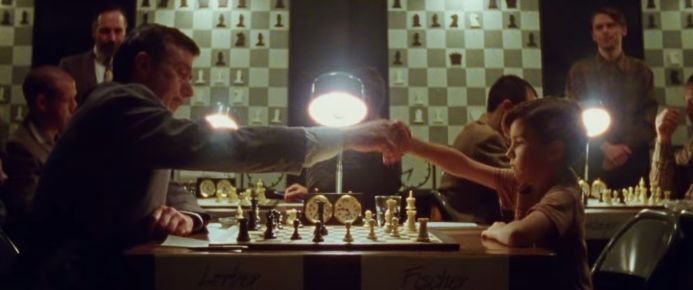
As a young boy, Bobby Fischer develops an obsession with chess and gets mentored by the 23rd(ish?) best chess player in New York City and slowly learns and develops his skills further. By the time he was 15 he became the youngest international Grandmaster ever. After achieving this, he sets his sights on becoming the best chess player in the world.
Cracks slowly begin to show, however, as Fischer begins to show signs of paranoia. He constantly thinks that his house, phones and cars have been bugged and that he is always being watched. As he climbs the world-ranks, defeating Russian after Russian, his paranoia only grows. As it grows, so do his demands for money, amenities, contracts and more.
He eventually wins the right to challenge Boris Spassky, the internationally ranked best chess player in the world, but seems to be at the point of a near mental break. But it is through this same madness, that his genius begins to truly shine.
thoughts
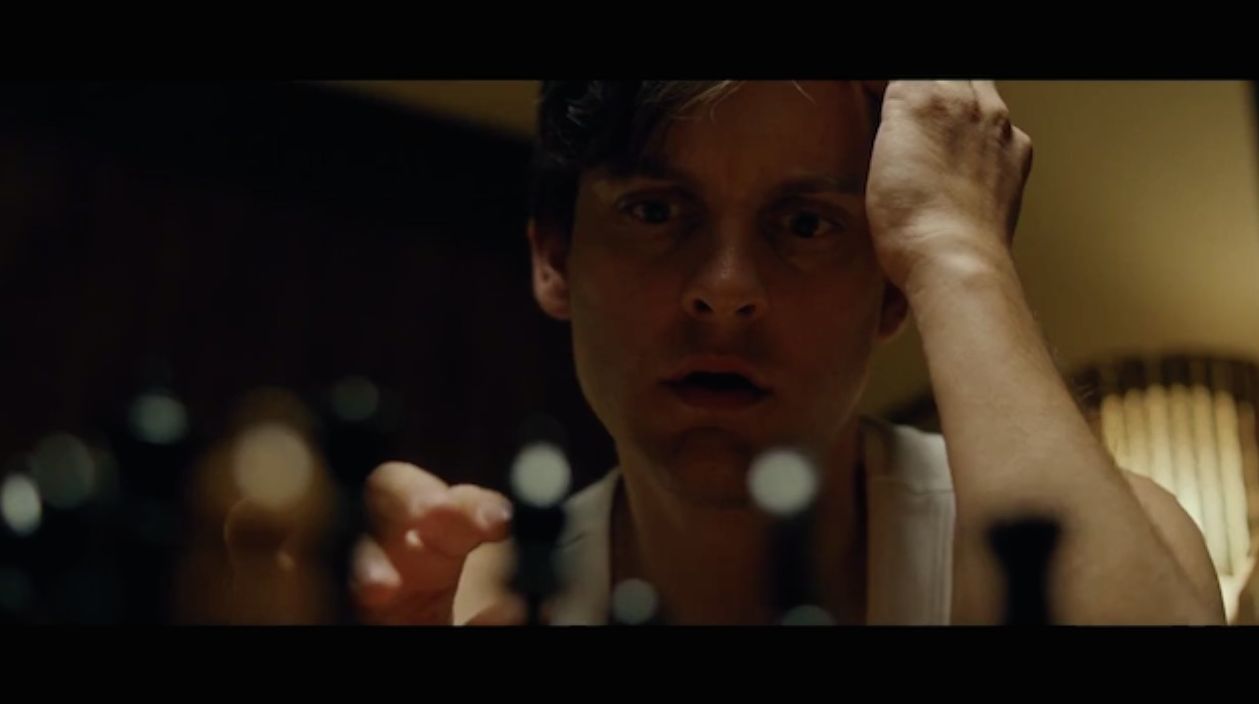
There is no doubt that Fischer was a chess-genius, I just wish you got to see more of that in the movie. It focuses very little on his ability as a chess player and more on his plummet into madness as the movie progresses. What’s worse is that in some parts of the film, it seems like a more selective madness rather than real madness as he usually uses his paranoia to either get out of situations he dislikes, or profit from them. And the moment he gets what he wanted he is usually fine.
Fischer’s character seems almost irredeemable and annoying at times as he suspects anyone and everyone are conspiring against him. And don’t get me wrong, I get it. This is what Bobby Fischer was really like– he was the flawed hero that was probably more mad than genius, but that doesn’t mean it had to be the focus point of the movie.
In fact, where the movie really shines is when Fischer is playing chess. McGuire is genius on-screen during this parts– even when Fischer’s madness gets the better of him. And the climax of the film, during the Spassky/Fischer bouts, is inspiring and artful, I just wished I could see more of it.
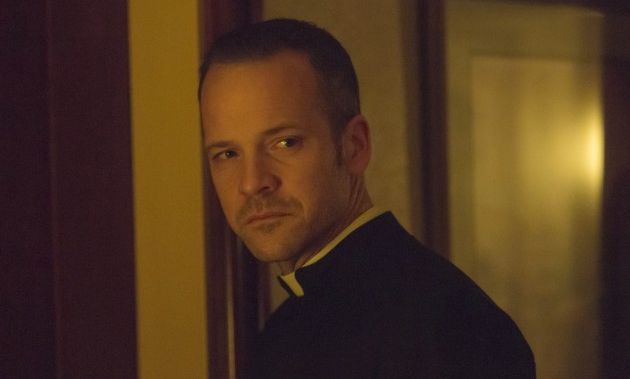
Spassky (Liev Schreiber) and Father Billy Lombardy (Peter Sarsgaard) might be the best characters of the film and I would most likely see solo-movies from these two characters as well. Spassky plays the Russian counterpart and life-long rival to Fischer in the film and he grapples with his own madness throughout the film as he believes that his own government is constantly spying on him as well. Whereas Lombardy is Fischer’s sort of pseudo-guardian throughout the movie as he watches over him during his run for the world-title.
Spassky’s own paranoia seems a bit more grounded than Fischer’s, but it does put forth the idea that perhaps Fischer’s insanity is not so crazy? Maybe he is being bugged and it was rather the USSR that drove him to madness rather than some sort of mysterious mental ailment. Or I could be reading way too far into it and what Lombardy said was true, the game of Chess brings even great men to within inches of madness, and sometimes further.
Ultimately, this film is a sports movie at its heart with a lot of extra nuances that take away from the “sport” of the film. However the film succeeds in both of its endeavors are creating a compelling sports movie as well as creating an impeccable human-interest film. But that doesn’t necessarily mean that they mesh well together. While I liked both ends of the film it felt as if you were watching two different movies when each occurred.
Rating
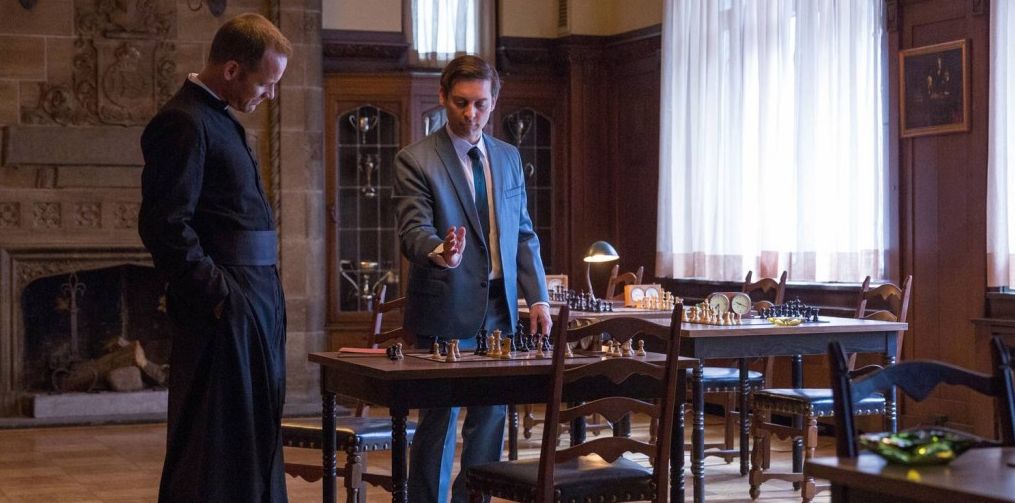
Plot
Bobby Fischer’s life is definitely a compelling one as he was a man caught between two warring nations. An argument can be made that it was this conflict that led to his mental break and led to the demise to the demise of one of the best chess players ever. There was, I believe, too much focus on Fischer’s character flaws rather than any sort of justification for them. Which leads you to hate the main protagonist from the beginning to the end of the film. (7/10)
Characters
Spassky and Lombardy were among the best characters of the film. Lombardy was the level-headed counterpoint and father figure to Fischer he played an equally intelligent man to the Spassky and Fischer but managed to not be crazy. In a way, as a “normal” audience member, you sort of see the movie from his perspective as you constantly struggle with the third-party perspective that one of the most genius men you ever met is going mad and you really cannot do anything about it. To do so would be to destroy a christ-like figure in the chess world. But to do nothing means that you are guilty of letting a man destroy himself for the “greater-good”. Spassky also represents a grounding point and lets you see that maybe there is some merit to Fischer’s madness. And, while I do not think Fischer’s character is likable in the film, I find that men with a vision generally are harder to understand. You never see things from their perspective and therefore can never understand them. (10/10)
Acting
Oh man, it was nice to see Toby McGuire in a film after so long. He hasn’t done anything since…what…The Great Gatsby? He did an incredible job capturing both the genius and the madness of Fischer as well as his deranged sense of justice. Whats even better is that fact that a relatively uninspiring cast turned in amazing performances all-around. (10/10)
Storytelling
While I liked the film and loved the characters and acting, I thought the film was a bit all over the past especially in the first act. But even throughout the whole film, I feel like they focused far too much on the character flaws of Fischer rather than his genius as a chess player. (5/10)
Ad-Campaign
Holy crap, if this movie is unsuccessful overall it is because they basically ran exactly one ad for it… one time! They really could have done with some more advertising even if you have a low-budget I feel like you can scrounge up a little for trying to drum up traffic. (3/10)
